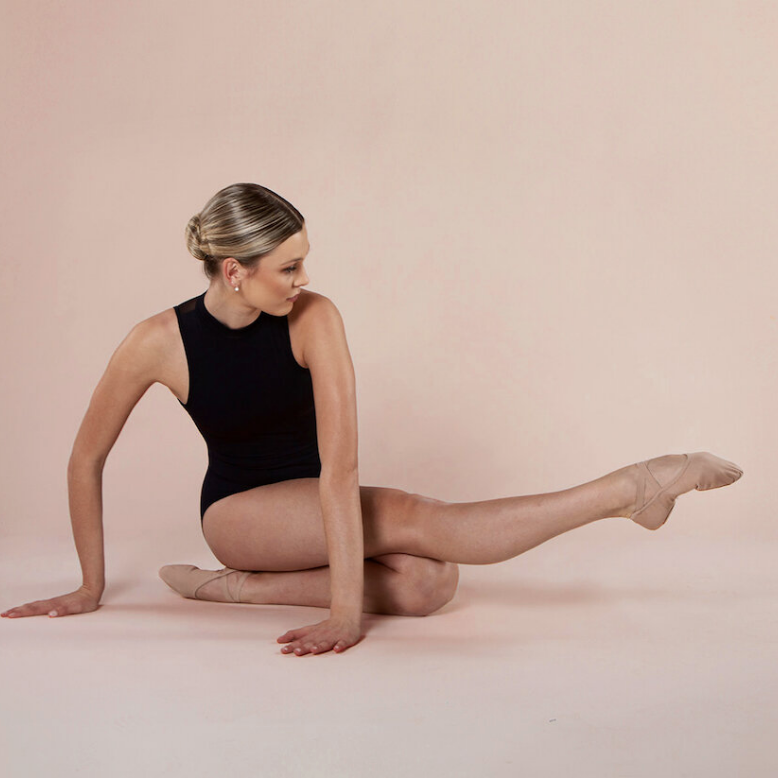Dance Advice: Tips for Nailing Your Next Dance Comp
Competitions are a great opportunity for dancers to showcase their talent and ability, while also receiving valuable feedback and insight from the judges. To add to the appeal comps are full of passion, energy, bright lights, booming music, glitz, and glamour - plus a whole lot of hairspray! A chance to learn from others, gain inspiration, and perform on stage, dance competitions can also be physically and mentally taxing at times with long days of performances and extended periods of waiting for your section to begin. Whether it’s your first competition or you’re a seasoned expert, you’re still likely to experience those nerves that come up before you hit the stage. To help you best prepare for your next comp we’ve listed our top tips to help you shine on stage (and be the dancer who leaves a smile on all the judges’ faces)!
Don’t fear the judges
Some dancers tend to freeze when they catch a glimpse of the judges panel. If you’re intimidated by the judges, try to look them in the eye with confidence. Don’t avoid eye contact. Smile and show them that you’re having the time of your life. You don’t have to look at them for the whole routine, but the judges do appreciate when eye contact is made at some point and you recognise their presence. If eye contact feels like it’s a bit more than you can handle, look right between the judges or just over their heads. That way you’ll give the illusion that you’re looking at them in the eye without actually having to do so! Ultimately it’s all about confidence. Even if you’re shy you can still have confidence in your abilities. Recognise all that hard work you put into practicing and rehearsing for competition day. When you walk on stage, hold your head high and strut with a positive attitude. It will show the judges that you’ve earned your spot on stage. Tell yourself ‘you can do this’ and you will start to convince your mind into believing that you can do anything you want. Confidence is key!
Choreography
Well thought out choreography can be the thing that gives you that extra edge in your routine and performance. A good choreographer knows how to put dance steps together to create an emotionally moving piece that highlights your strengths and disguises any shortcomings. The dynamics in your performance and how you’re executing each step is another thing that draws in your audience and judges. Try to find the light and shade within your movement. The subtle nuances as well as the explosive movement. This will help you set yourself apart from the others and also allow you to show your personality throughout the piece. It’s generally best to avoid making any last minute changes to your choreography too. Spend the final stages of rehearsing ensuring you have your routine nailed rather than worrying about any last second changes. You want to feel comfortable within the dance and movement you are performing. And don’t forget to smile! Often we get caught up with the choreography and forget to use our face. Smile because you’re happy to be on stage, sharing your passion with others. If you make a mistake but are continuing to smile it won’t be as noticeable. However, if you let it show on your face that something has gone wrong, those who are watching are more likely to pick up on the fact that something hasn’t gone according to plan.
Zoe wears the Energetiks Alexandra Camisole in Black
Practice
You can’t go past the old saying ‘practice makes perfect’. The hours spent in the studio will be worth it when you step on the stage. While they may seem long and tiring at times too, you’ll be grateful for them when you’re able to perform your routine with ease. Aim to rehearse full out without marking as often as you can. This will allow you to build your stamina and know how much energy to put into each section of the routine. Rehearsals of entries and exits, as well as practicing your smile or any other facial expression needed throughout the routine is just as important as rehearsing the movement. Your body doesn’t stop at your neck so you need to ensure you’re including your face and head as much as possible. Where you can, aim to perform in front of an audience too. Whether that be students from your studio or friends and family. This will allow you to experience some of that nervous energy that comes with performing in front of an audience and allow you to centre yourself before you get to the stage. Being in costume and makeup will also give you the opportunity to experience those aspects as well. The more you practice in front of an audience the more comfortable you’ll feel, allowing you to relax and enjoy being on stage.
Preparation
This doesn’t just mean rehearsing for the routine. This also includes preparing your snacks and drinks for the upcoming day in advance, ensuring your costumes are ready to go and preparing an emergency kit (spare tights/socks, safety pins, threat and needle, bobby pins, hair ties, bun nets, tissues, makeup wipes, hairspray, eyelash glue). Costume malfunctions may be out of your control but there’s no excuse for poor presentation! It’s also a good idea to find out where the venue is located before the big day and working out the best route to get there to determine how much time you’ll need. Many competitions are held at convention centres, school theatres or similar venues. Ensure you’ve looked at the correct entrance to the building, best place for parking, and whether there are any roadworks or road closures that could take you longer to get there.
Shop Energetiks bags & accessories here
Take care of your body
Warming up before you take the stage is important for preventing injuries, as well as calming your nerves. Once you arrive at the competition, settle yourself and begin to find a spot to begin your warm up. Try to locate a space that’s away from the crowd that gives you enough room to stretch properly. Keep your focus on your own body and avoid glancing at other dancers - it will only increase your nerves! Instead, focus on your breath and what you’re doing to prepare your mind and body for what you’ve trained it to do. It’s also important to eat well leading up to the competition. Eating a balanced diet including a variety of fruit and vegetables, protein, and healthy fats will support energy levels, cell turnover and muscle recovery, preparing you to perform to the best of your ability. Ensuring you’re drinking enough water is also essential for rehydrating your body and preventing muscle cramps. And don’t disregard the importance of getting enough rest and sleep! Adequate rest allows for further muscle recovery due to the protein synthesis that occurs when we are resting and sleeping!
At the end of the day, your dance journey is all about you. Rather than worrying about the competitors, focus on your progress and artistry. Remember that competing isn’t everything. Your future in dance won’t be contingent upon how many trophies you have in your room! Try to relax and simply do your best. Just think of how far you’ve come since you started and what skills you’ve gained along the way, rather than focusing solely on the outcome. All you can do is your best!
Break a leg!
Article by Sheree Ronai-Horvath
Photography by Elly Ford










